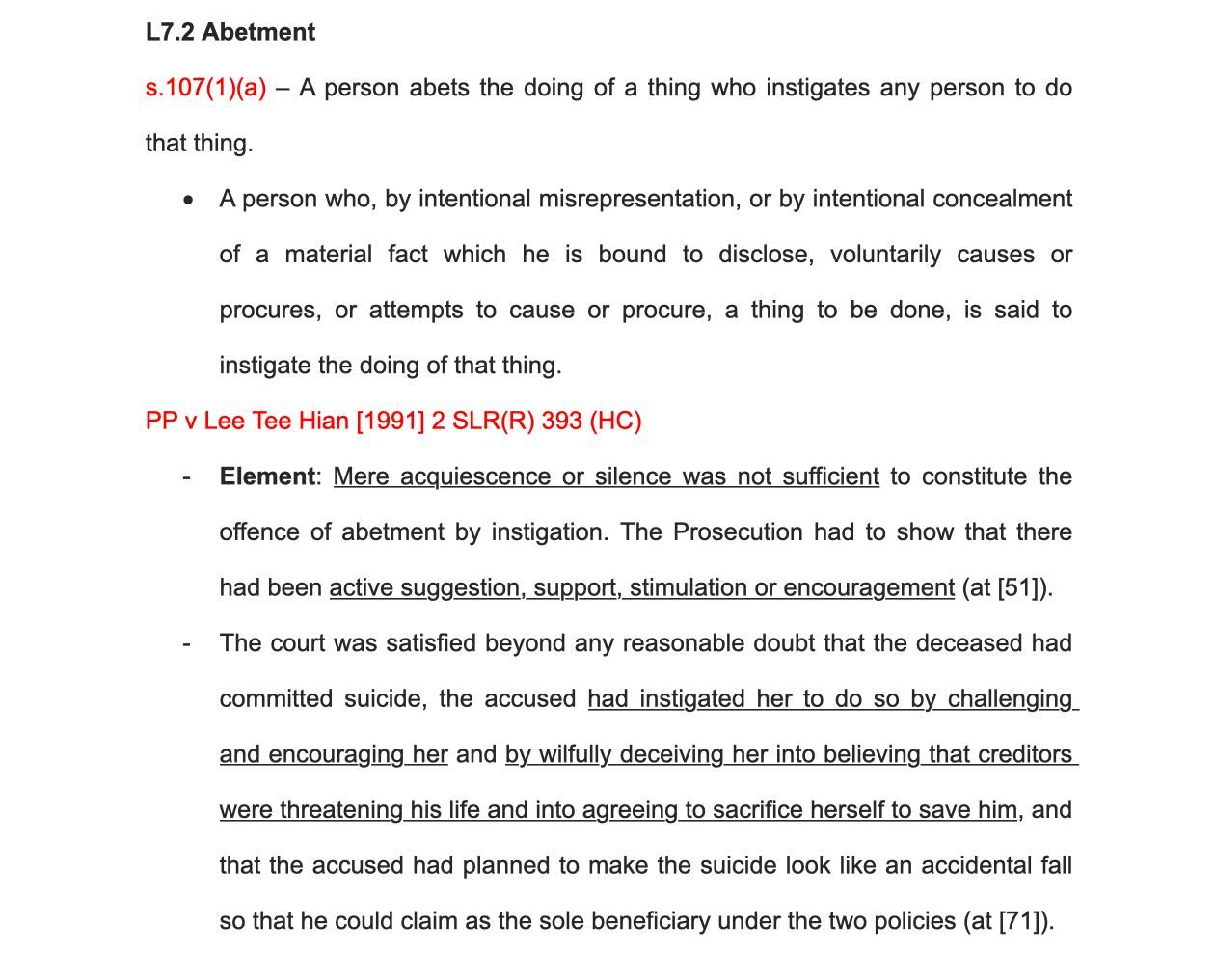Over the past three years studying Law and Management at Temasek Polytechnic, I was constantly searching for more effective ways to study for exams and eventually found what worked best for me. Since I have received quite a few questions about how I prepare for exams, I thought I would share some of the tips that helped me get through my law exams.

Preparation
I spent most of my preparation time doing past year exam papers to assess how well I could apply legal knowledge to different problem questions under exam conditions.
I always started with multiple choice questions (MCQs). They were especially helpful in pinpointing the topics I was weakest in, so I could revise more strategically right from the start. After completing at least two to three sets of MCQs, I usually had a clear idea of where my knowledge gaps were. I would then focus on reading, researching, and reviewing those areas before moving on to structured questions.
Here are three tips I found to be the most effective and efficient in tackling structured questions:
Tip 1: Use the ILAC method (Issue, Law, Application, Conclusion) to structure your answers. You can find more detailed explanations of ILAC online, but here is a simple example I used:
The issue is how Mr. Tan's estate would be distributed (I). Section 7, Rules 2 and 3 of the Intestate Succession Act 1967 state that if an intestate dies leaving a surviving spouse and children, the spouse shall be entitled to one-half of the estate, and the remaining half shall be distributed equally among the children (L). As Mr. Tan dies intestate, leaving behind his wife and two adult children, 50% of his estate will go to his wife, and 25% to each of his children (A + C).
Tip 2: Write your answers in full sentences using pen and paper as if you are answering the questions in the exam hall. This practice helped me avoid overwriting and gave me a better sense of how to cite the law clearly and concisely.
Tip 3: Prepare a case summary list in advance. This saved me a lot of time during exams, as I did not have to dig through stacks of lecture slides or notes to locate that one case hidden in dozens of pages. Aside from creating a table that listed key cases and their legal principles, I also prepared commentaries to help me quickly locate the relevant case law when a question focused on a specific section of an Act. Here is an excerpt from the commentary I prepared for my criminal law exam:

Exam
Lastly, here are a few time management tips I used to ensure I could finish the paper within the time limit:
Tip 1: Allocate time based on marks. Before starting the paper, I would quickly estimate how much time to spend on each section. For example, in a 2-hour exam, I always aimed to complete questions worth 50 marks in 50 minutes. That way, I could leave some time to check through my answers. It does not have to be exact; a rough estimate is enough.
Tip 2: Skip and return. If I came across a question I did not immediately know how to answer, I would skip it and move on to the ones I was confident in. This helped me avoid wasting time getting stuck on one question. I would return to the tougher ones once I finished the rest.
Tip 3: Write according to the marks. I used to overwrite when I felt confident about a question, which often left me with less time for the rest of the paper. As I mentioned earlier, practicing by writing full answers using pen and paper as if I were in the exam hall helped me manage this better.
While exam preparation is important, I have found that staying consistent throughout the semester matters even more. Preparing for classes and putting your best effort into assignments helps build a solid foundation. That way, when study week comes around, you can focus on applying what you have already learned, because it is often difficult to both understand and apply new concepts within such a short timeframe. Thank you for reading, and I hope these tips are helpful to you.